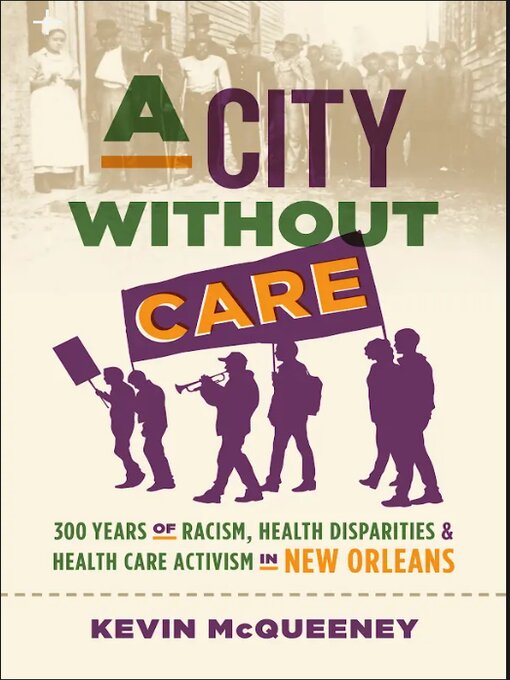- All Magazines
- Popular Magazines: Always Available
- Cooking and Food Magazines
- Craft Magazines
- News and Politics
- Always Available Popular Magazines
- See all
A City without Care
300 Years of Racism, Health Disparities, and Health Care Activism in New Orleans /
-
Description
-
Details
In addition to charting this history of neglect, McQueeney also suggests pathways to fix the deeply entrenched inequities, taking inspiration from the "long civil rights" framework and reconstructing the fight for improved health and access to care that started long before the boycotts, sit-ins, and marches of the 1950s and 1960s.

Kindle Book
- Release date: October 9, 2024
OverDrive Read
- Release date: October 9, 2024
Open EPUB ebook
- File size: 9128 KB
- Release date: October 9, 2024
In addition to charting this history of neglect, McQueeney also suggests pathways to fix the deeply entrenched inequities, taking inspiration from the "long civil rights" framework and reconstructing the fight for improved health and access to care that started long before the boycotts, sit-ins, and marches of the 1950s and 1960s.

-
Details
Publisher:
The University of North Carolina Press
Kindle Book
Release date: October 9, 2024
OverDrive Read
Release date: October 9, 2024
Open EPUB ebook
File size: 9128 KB
Release date: October 9, 2024
-
Creators
- Kevin McQueeney - Author
-
Formats
Kindle Book
OverDrive Read
Open EPUB ebook
-
Languages
English
Loading
Why is availability limited?
×Availability can change throughout the month based on the library's budget. You can still place a hold on the title, and your hold will be automatically filled as soon as the title is available again.
The Kindle Book format for this title is not supported on:
×Read-along ebook
×The OverDrive Read format of this ebook has professional narration that plays while you read in your browser. Learn more here.
